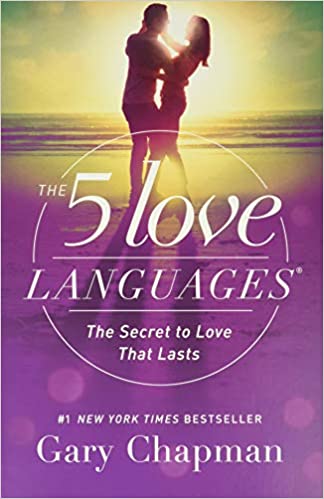About
Chapman’s goal throughout The Five Love Languages is to address a single question: “Why do so few couples appear to have discovered the key to keeping love alive after the wedding?”
The book is broken into three parts.
The first three chapters include the introduction, which lays out the foundations. The next five chapters compose the second portion, each of which discusses one of the five love languages in-depth and uses examples of real pairs to demonstrate the practical consequences of theoretical ideas. The remaining five chapters provide the text’s concluding segment, summarising the content presented thus far and addressing a variety of issues that may arise throughout the marriage. These issues may be remedied (or at least lessened) if the love languages were used with sincerity.
Notable quotes
- “Forgiveness is not a feeling; it is a commitment.”
- “I am amazed by how many individuals mess up every new day with yesterday.”
- “Encouragement requires empathy and seeing the world from your spouse’s perspective. We must first learn what is important to our spouse. Only then can we give encouragement. With verbal encouragement, we are trying to communicate, “I know. I care. I am with you. How can I help?” We are trying to show that we believe in him and in his abilities. We are giving credit and praise.”
- “People tend to criticize their spouse most loudly in the area where they themselves have the deepest emotional need.”
- “Real love” – “This kind of love is emotional in nature but not obsessional. It is a love that unites reason and emotion. It involves an act of the will and requires discipline, and it recognizes the need for personal growth.”
- “The person who is “in love” has the illusion that his beloved is perfect.”
- “For love, we will climb mountains, cross seas, traverse desert sands, and endure untold hardships. Without love, mountains become unclimbable, seas uncrossable, deserts unbearable, and hardships our lot in life.”
- “What we do for each other before marriage is no indication of what we will do after marriage.”
- “Something in our nature cries out to be loved by another. Isolation is devastating to the human psyche. That is why solitary confinement is considered the cruelest of punishments.”
- “Inside every child is an ’emotional rani’s waiting to be filled with love. When a child really feels loved, he will develop normally but when the love tank is empty, the child will misbehave. Much of the misbehavior of children is motivated by the cravings of an empty ‘love tank.”
- “The in-love experience does not focus on our own growth or on the growth and development of the other person. Rather, it gives us the sense that we have arrived and that we do not need further growth.”
- “The best thing we can do with the failures of the past is to let them be history.”
- “Our most basic emotional need is not to fall in love but to be genuinely loved by another, to know a love that grows out of reason and choice, not instinct. I need to be loved by someone who chooses to love me, who sees in me something worth loving. That kind of love requires effort and discipline. It is the choice to expend energy in an effort to benefit the other person, knowing that if his or her life is enriched by your effort, you too will find a sense of satisfaction—the satisfaction of having genuinely”
- “Recent research has indicated that the average individual listens for only seventeen seconds before interrupting and interjecting his own ideas.”
- “Most of us have more potential than we will ever develop. What holds us back is often a lack of courage.”
- “Psychologist William James said that possibly the deepest human need is the need to feel appreciated.”
- “I would encourage you to make your own investigation of the one whom, as He died, prayed for those who killed Him: ‘Father forgive them for they know not what they do.’ That is love’s ultimate expression.”
- “In fact, true love cannot begin until the in-love experience has run its course.”
- “We are trained to analyze problems and create solutions. We forget that marriage is a relationship, not a project to be completed or a problem to solve.”
- “Material things are no replacement for human, emotional love.”
